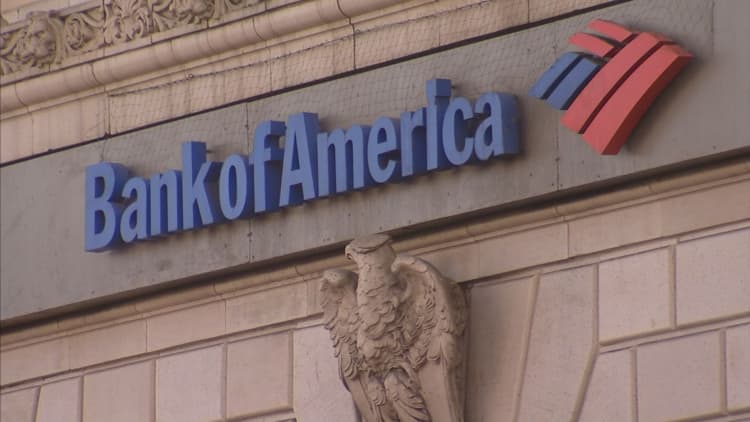
Bank of America Merrill Lynch is ending a five-year-long bearish call on Asia and emerging market equities, turning fully bullish.
The MSCI Emerging Markets index has rallied around 6 percent so far this year, but it's still down more than 30 percent over the past five years.
But now, the bank said valuations in both Asia ex-Japan and emerging markets look attractive on both a price-to-earnings and a price-to-book basis, not just on their own, but also when compared with global valuations.
"The anchoring effect of five-year's underperformance is a powerful downer. We think that the balance of risks is exactly the opposite," it said in a note dated Sunday. "Investors should get out of the bunker and off the fence and make a longer-term bullish commitment."
Emerging markets are also getting a boost from recent U.S. dollar moves, which are making their currencies more competitive, it said. The trade-weighted inflation-adjusted U.S. dollar rose 33 percent from its mid-2011 lows through earlier this year, with signs emerging now that the greenback may be stabilizing, BofA said.
Sharp weakening in emerging market currencies typically spurs a reining in of excesses and cutbacks on mal-investment, with the process now "quite advanced" in most countries, it said.
"Competitive currencies make assets in these countries more attractive, and generally help their profit margins by making their exports more desirable," it said, adding that around 40 percent of emerging-market currencies are in their most competitive zone against the dollar.
Another reason BofA is turning bullish on the segment is that capital expenditure is declining, which it sees as an indicator of higher earnings margins ahead.
"As strategists, we normally recoil when we see too much investment. A lot of it is often simply mal-investment, financed by cheap, mispriced capital and uncontrolled animal spirits," BofA said. "For now, we can see that the capex binge in Asia is reversing itself (mainly India, Korea, Taiwan and China but not in Southeast Asia). Likewise, in Latin America and more mixed in EEMEA [Eastern Europe, Middle East and Africa]."
That means margins should begin to rise in Asia and emerging markets, especially when compared with the U.S. and Japan, it said.
BofA also expects tailwinds from reforms of state-owned enterprises (SOE) across emerging markets, where they account for around 50 percent of market capitalization.
"A renewed public backlash against perceived corruption, more expensive and less available capital, and deteriorating fiscal positions are likely to drive an inflection point in emerging market SOE reform," it said, citing Brazil as an example.
In Brazil, billions of dollars were diverted from state-controlled oil company Petrobras, which left the company crippled as the price of crude tumbled. The surrounding scandal was a driver not just to refocus the company but also for the likely impeachment of the country's President Dilma Rousseff.
"We are not expecting any magical turnarounds [of SOEs] – things just need to get less bad for re-rating," it said.
Other analysts are also looking for a recovery in emerging market performance.
"Emerging Markets could perform better than developed markets over coming months on Chinese government stimulus and lower relative valuations," DBS Wealth Management said in a note Monday. "Indeed, negative interest rates in developed markets and a subdued dollar already appear to be driving a return of interest in carry trades."
A carry trade involves borrowing in a low interest rate currency for investments in higher-yielding assets, usually in a different currency.
But DBS isn't expecting a bull market for the segment, adding it expects a broad sideways range is more likely.
Follow CNBC International on Twitter and Facebook.
—By CNBC.Com's Leslie Shaffer; Follow her on Twitter @LeslieShaffer1




